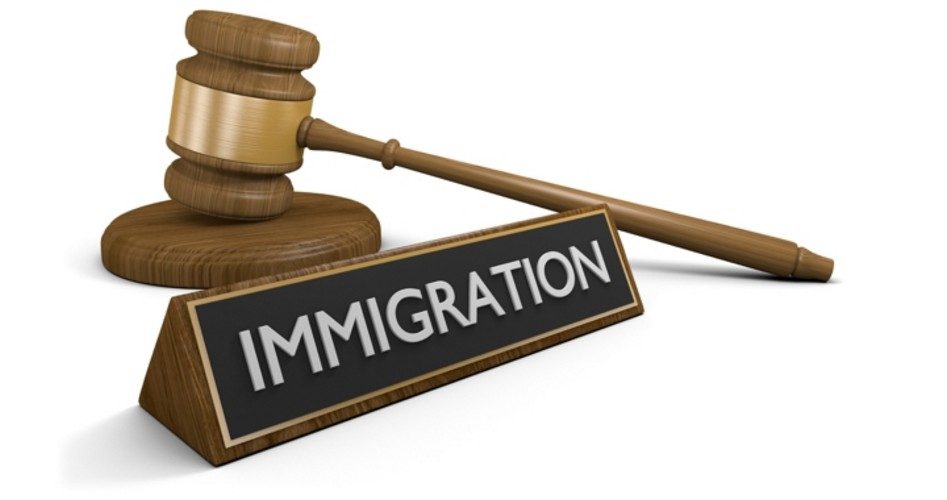
Daniel Ramirez, an illegal alien and gang member apprehended by Immigration and Customs Enforcement (ICE) agents on February 10, filed a lawsuit on Monday against the Department of Homeland Security, DHS Secretary John Kelly, and the director of ICE’s Seattle field office alleging that he “is presently being detained without justification.”
The suit continues by stating that “Mr. Ramirez’s detention breaks the promise made to him under the well-established framework of the DACA program, violates his reasonable expectations based on the DACA program, and violates his right under the Fourth and Fifth Amendments of the United States Constitution.”
The DACA (Deferred Action for Childhood Arrivals) program was initiated in June 2012 by a policy memorandum sent from former DHS Secretary Janet Napolitano. DACA allows certain illegal aliens who entered the country as minors to receive a renewable two-year period of deferred action from deportation and eligibility for a work permit. The young aliens granted these privileges under DACA are often referred to as “DREAMERS,” because DACA granted privileges that were originally proposed under a legislative proposal called the DREAM Act (an acronym for Development, Relief, and Education for Alien Minors). The DREAM Act was introduced in several Congresses during the period 2001 through 2011, but was never passed by the Senate in any of its versions.
Having failed to get the legislation he wanted, President Obama eventually decided to unconstitutionally circumvent Congress, announcing on June 15, 2012 that his administration would stop deporting young illegal aliens (referred to as “undocumented immigrants”) who match certain criteria previously proposed under the DREAM ACT.
In response to Ramirez’s lawsuit, on Tuesday Magistrate Judge James Donohue of the U.S. District Court of the Western District of Washinogton in Seattle, asked the respondents to answer several questions by Thursday:
a. Is petitioner [Ramirez] still detained? What is the basis for his detention, given that he has been granted deferred action under the Deferred Action for Childhood arrivals program?
b. Has petitioner been placed in removal [deportation] proceedings? What was the result of ICE’s initial custody determination? Has petitioner requested a bond hearing before an Immigration judge? When is any bond hearing scheduled to occur?
c. Does the Court have the authority to order an Immigration Judge and the Board of Immigration Appeals to challenge the petitioner’s detention status on an expedited basis?
d. If petitioner is still detained and removal proceedings have not been initiated against him, what is the basis for ICE’s authority to detain him? What limitations are there, if any, on the Court’s ability to hold a detention hearing for petitioner before the merits of his habeas petition have been granted? [Emphasis in original.]
Donohue established the following deadline for the parties:
By Thursday, February 16, Ramirez may file a response to the respondents’ brief.
By Monday, March 20, the respondents shall show cause why a writ of habeas corpus should not be granted and, that same day, Ramirez must file a response brief.
BuzzFeedNews quoted a statement from Rose Richeson, an ICE spokesperson, who said Ramirez was detained because he was a “self-admitted gang member. ICE officers took Mr. Ramirez into custody based on his admitted gang affiliation and risk to public safety.”
A report in the Washington Times observed:
Approval [for DACA] was always discretionary and Homeland Security said it retained the right to go after targets — and said Mr. Ramirez had become a target because of his gang affiliation.
Indeed, the Obama administration itself said membership in a gang was enough to disqualify someone from DACA, and the administration even went back and revoked permits of some illegal immigrants whose gang memberships were only discovered after they’d already been approved.
Most of the versions of the original DREAM Act upon which DACA was based included among the requirements for permanent residency a phrase stipulating that the alien included in the program must continue to demonstrate good moral character.
One of the eligibility requirements for DACA is that the individual has not been convicted of a felony or serious misdemeanors, or three or more other misdemeanors, and does not otherwise pose a threat to national security or public safety.
Under these standards, if ICE can prove that Ramirez was affiliated with a gang, that would certainly preclude his eligibility to have his deportation deferred under DACA.
But the larger issue is: Since DACA was issued by executive decree, as if the presidnet were a monarch possessing both legislative and executive powers, why would the new administration not be able undo the Obama administration’s executive action?
Related articles:
Judge Delays on Obama Request for Stay of Immigration Order Ruling
Obama Administration Asks Judge to Expedite Consideration of Immigration Order Stay
Obama Immigration Amnesty Action Is on Hold as Appeals Are Planned
Federal Judge Stops Obama Executive Action Amnesty
More States Suing Feds Over Immigration Executive Orders
States Sue Obama Administration Over Executive Order on Immigration

